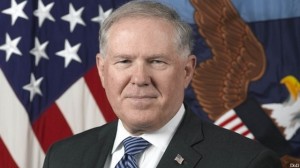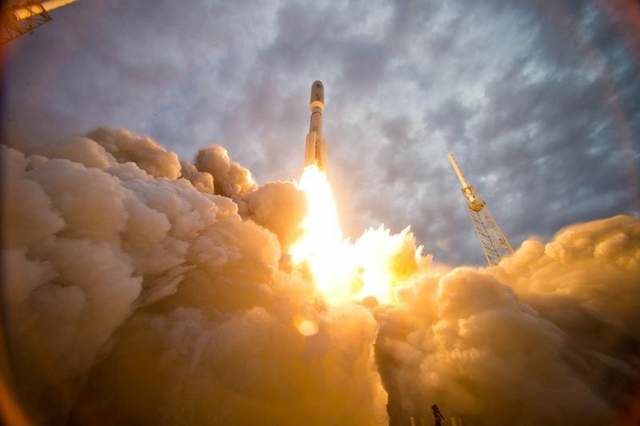Kendall ‘Open-Minded’ On Sharing RD-180 Replacement Costs
Posted on
HUNTSVILLE, ALA.: American ingenuity can absolutely build a rocket engine to replace the Russian-made RD-180, the Pentagon’s top buyer said today. The wide-open questions are: how soon can they do it; and how much will the Pentagon have to pay.
“The big problem isn’t the technology, it’s the time,” Frank Kendall told reporters at the Space & Missile Defense conference here. Congress wants the US military to stop relying on imported Russian rocket engines by 2019, he said, but “that’s pretty ambitious. I think 2021 or ’22 is probably more realistic.”
Sen. John McCain, chairman of the Senate Armed Services Committee, is likely to have something to say about that. He has made it crystal clear that he wants the replacement by 2019 and doesn’t really care if it’s hard or not. McCain is furious with Russia’s invasion of Ukraine and takes pride in the fact that he’s been personally sanctioned by Vladimir Putin’s regime.

Frank Kendall
On top of the debate about how fast can the new engine be built, there’s the cost-sharing question. “The approach we would prefer, rather than just paying for new engine development, is to help someone close their business case [for] providing launch services,” Kendall said. In other words, could an infusion of Defense Department dollars or a promise of Pentagon business give companies enough incentive to develop a rocket engine where the return on investment would otherwise be too low?
Previously, Pentagon officials have said industry must pay at least a third of the development cost, one reporter noted. Is there flexibility on that number now?
“We’re open-minded” about what percentage the Pentagon would have to pay, said Kendall, “as long as we get guarantees that we will get launch capability at a certain point in time.”
“It has to cut both ways,” Kendall added. “There has to be some set of provisions that would bind the government somehow so there’s a customer here at the end of the day.” (One form this commitment might take is a guaranteed number of launches the Pentagon would buy.)
The Defense Department is now analyzing industry responses to its second Request For Information on the rocket engine, said Kendall. “We’ve asked industry to do what industry normally does in the commercial markets: analyze potential business cases, decide what kind of investments have to be made, what the return on that would [have to] be to justify those investments, and what fraction of that the government would have to do to close the business case,” he said.
“It’s possible that we won’t be able to close anybody’s business case, in which case we’d look at actually funding an engine and providing it as GFE [Government Furnished Equipment] to various launch suppliers,” Kendall said. But the Pentagon is going to try to get industry to pick up part of the tab first.
For obvious geostrategic reasons, “we would like to get off of any dependency on RD-180 as quickly as possible,” Kendall said, “but we want to take a path to do that that’s cost-effective.”
Subscribe to our newsletter
Promotions, new products and sales. Directly to your inbox.

